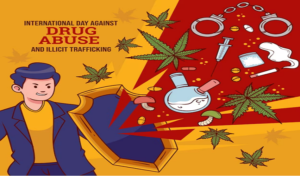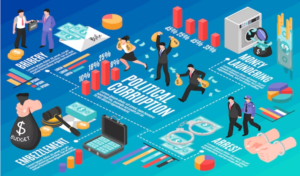Understanding the psychology of drug addiction and abuse

Addiction to and abuse of drugs is a very serious issue that affects people and places all over the United States. Addiction can happen quickly and have a terrible effect on a person’s life, whether it’s to prescription pills, illegal drugs, or even alcohol. But what makes a person start using in the first place? And why is it so hard to get out of the grip of an addiction? These are just some of the questions that the field of psychology tries to answer about drug abuse and addiction.
At its core, drug addiction is a long-term disease that makes people want and use drugs no matter how bad it is for them. Addiction isn’t just a matter of having enough willpower or being a good person. It changes the way the brain works and can be very hard to beat without professional help. Drug addiction and abuse are very common in the United States, which is a shame. According to the National Survey on Drug Use and Health, about 19.3 million Americans aged 12 and up were dealing with a substance use problem in 2020. That’s almost 8% of all the people living in the US. Given these numbers, it’s clear that it’s more important than ever to understand how drug abuse and addiction work in the mind. By looking into the causes of addiction and the different ways to treat it, we can start to do something about this epidemic and help people who are fighting to beat their addiction. So let’s get started and look more closely at what makes addiction so hard to beat and what we can do to help.
Why people become addicted to and abuse drugs
Abusing drugs and becoming addicted to them can be caused by a wide range of things, from biological to environmental to psychological. Genes and the chemistry and shape of the brain are both biological factors that can lead to addiction. Early exposure to drugs, easy access to drugs, and group pressure are all environmental factors that can lead to addiction. Trauma, stress, and mental health disorders like anxiety and sadness are all psychological factors that can lead to addiction. All of these things can make a person more likely to become addicted to or abuse drugs. By learning about these underlying causes, we can start to come up with better ways to avoid and treat addiction. It’s important to remember that addiction is not a choice; it’s a complicated disease that needs a lot of help and care.
Drugs that are often abused in the US
In the US, people often abuse many different kinds of drugs, each of which has its own effects on the brain and body. Opioids, which include prescription painkillers and heroin, are very addictive and, in high amounts, can cause the body to stop breathing. Cocaine is a drug that makes your heart beat faster and can lead to addiction. Even though marijuana is often seen as a pretty safe drug, it can still make some people feel bad and lead to addiction. Methamphetamine is a highly addictive stimulant drug that can lead to tooth decay and insanity, among other health problems. Lastly, prescription drugs like sedatives and tranquillizers can be very dangerous and addicting if they are used the wrong way. Know the risks of each of these drugs and get help if you or someone you know is addicted.
How addiction and abuse work in the mind
Abusing drugs affects not only the body but also the brain, changing the way it works and how it is built. Addiction changes the brain’s reward system, which makes it release a lot of dopamine in reaction to drug use. This makes people want to use drugs even more. Over time, the brain stops feeling these affects as much, which leads to tolerance and more drug use to get the same effect. This circle of addiction keeps going, which makes it hard for people to stop using drugs. Addiction and abuse can also be caused by mental and emotional problems like depression, worry, and trauma. These things can make it harder for someone to stop using drugs and make them more likely to start using in the first place. Understanding these mental and emotional factors is important for making successful plans for preventing and treating addiction.
Drug addiction and abuse signs and symptoms
There are many different physical and behavioural signs that someone is addicted to or abusing drugs. Changes in eating and sleep, weight loss or gain, and skin infections or sores can all be physical signs. People who are addicted to drugs may show changes in behaviour like mood swings, anger, and a lack of drive. They might also become private, lie, and pull away from people. Some of the social and emotional effects of drug addiction and abuse are stressed relationships with friends and family, trouble with money, and trouble with the law. Addiction can also cause mental health problems like anxiety and sadness. To get help for yourself or a loved one, it is important to know the signs and symptoms of drug addiction and abuse. There are ways to get help, and healing is possible.
Help for people who are addicted to or abuse drugs
In the United States, there are many ways to help drug addiction and abuse. These include behavioural therapies, medications, and support groups. Behavioural treatments try to change a person’s thoughts and actions about drugs in order to keep them from using again. Cognitive-behavioral therapy (CBT) is one treatment for addiction that has been shown to work. Medications, like methadone and buprenorphine for opioid addiction, can also be used to help addiction. Support groups like Narcotics Anonymous can give people in recovery a safe place to talk about their experiences and get help. It’s important to keep in mind that care should be different for each person and fit their needs. With the right help and care, it is possible to get over drug addiction and abuse.
Stopping drug abuse and addiction
To stop people from getting addicted to drugs and abusing them, you need to use methods that work for both individuals and society as a whole. Education and awareness efforts can help people understand the risks of using drugs and come up with healthy ways to deal with problems. Public policy and lobbying work, like making it easier to get treatment and making drugs harder to get, can also help stop drug abuse and addiction. Also, handling things like poverty and mental illness that can lead to addiction can make it less likely that people will use drugs. It’s important to put prevention efforts at the top of the list to lessen the effects of drug abuse and addiction on both people and society as a whole.
Read More You May Like:








